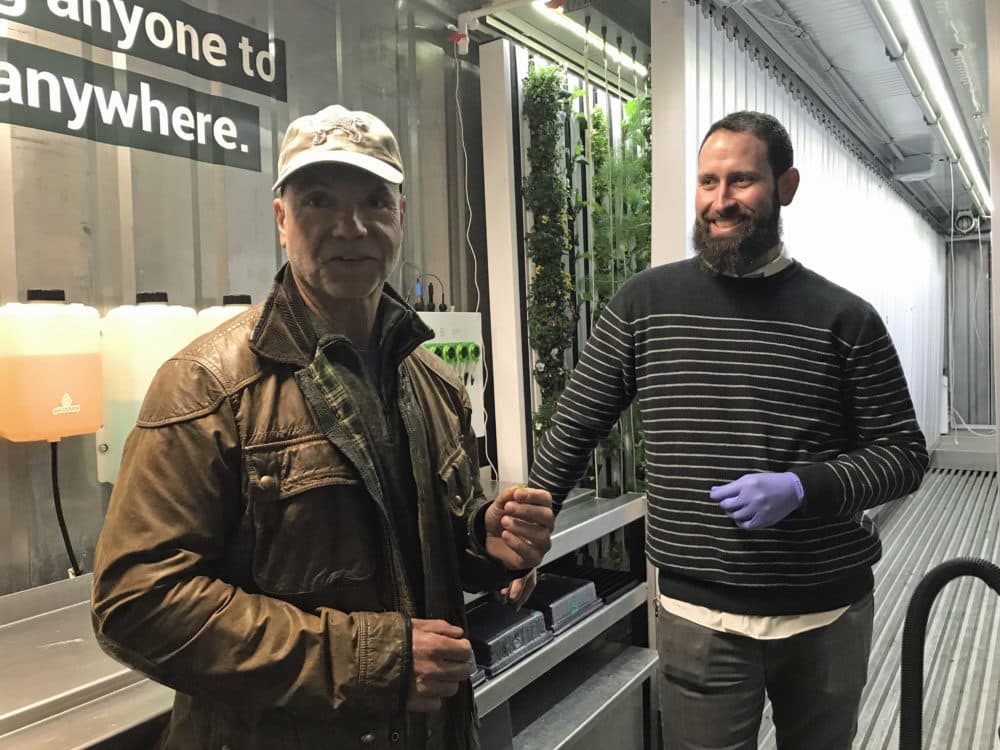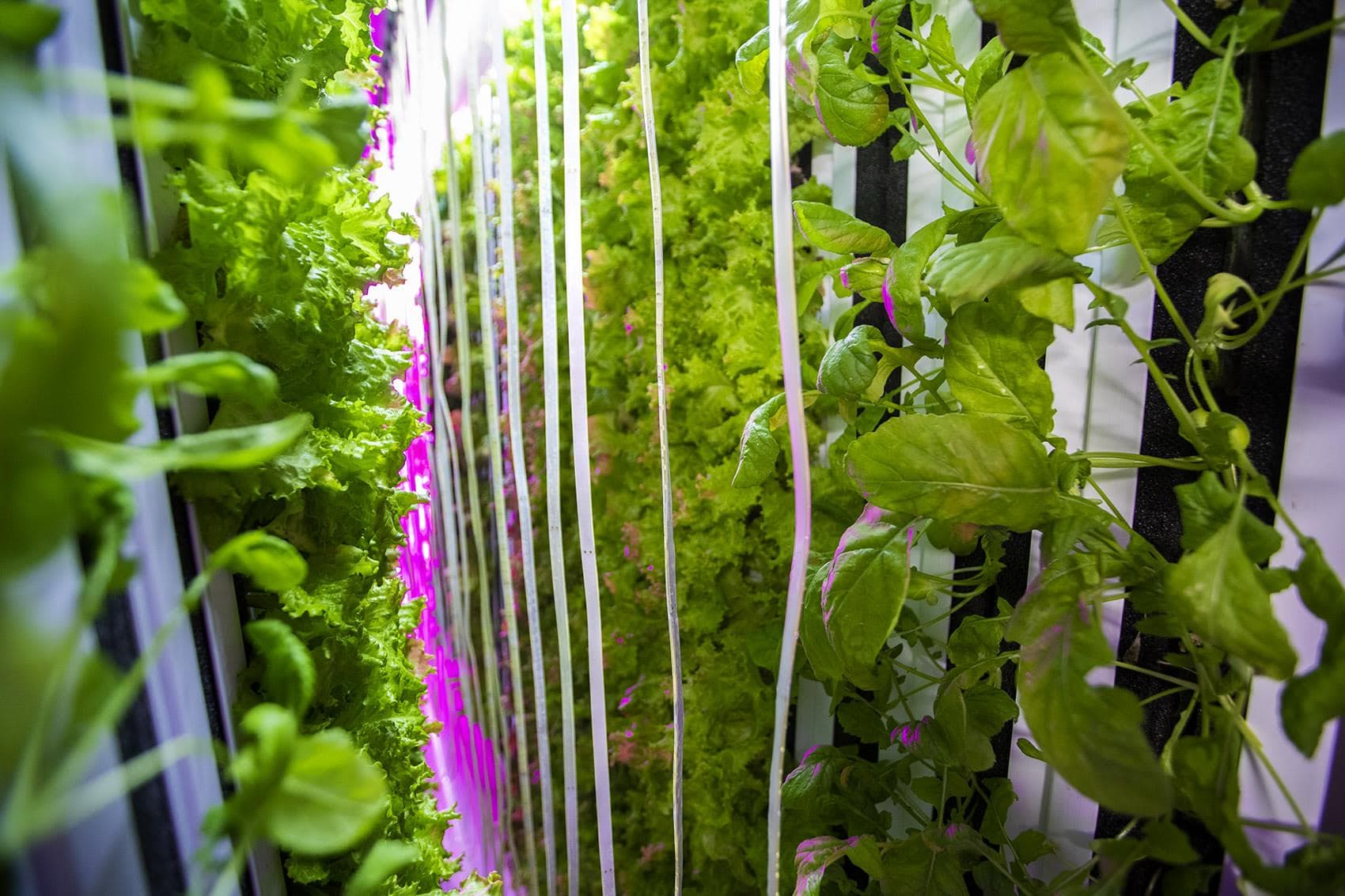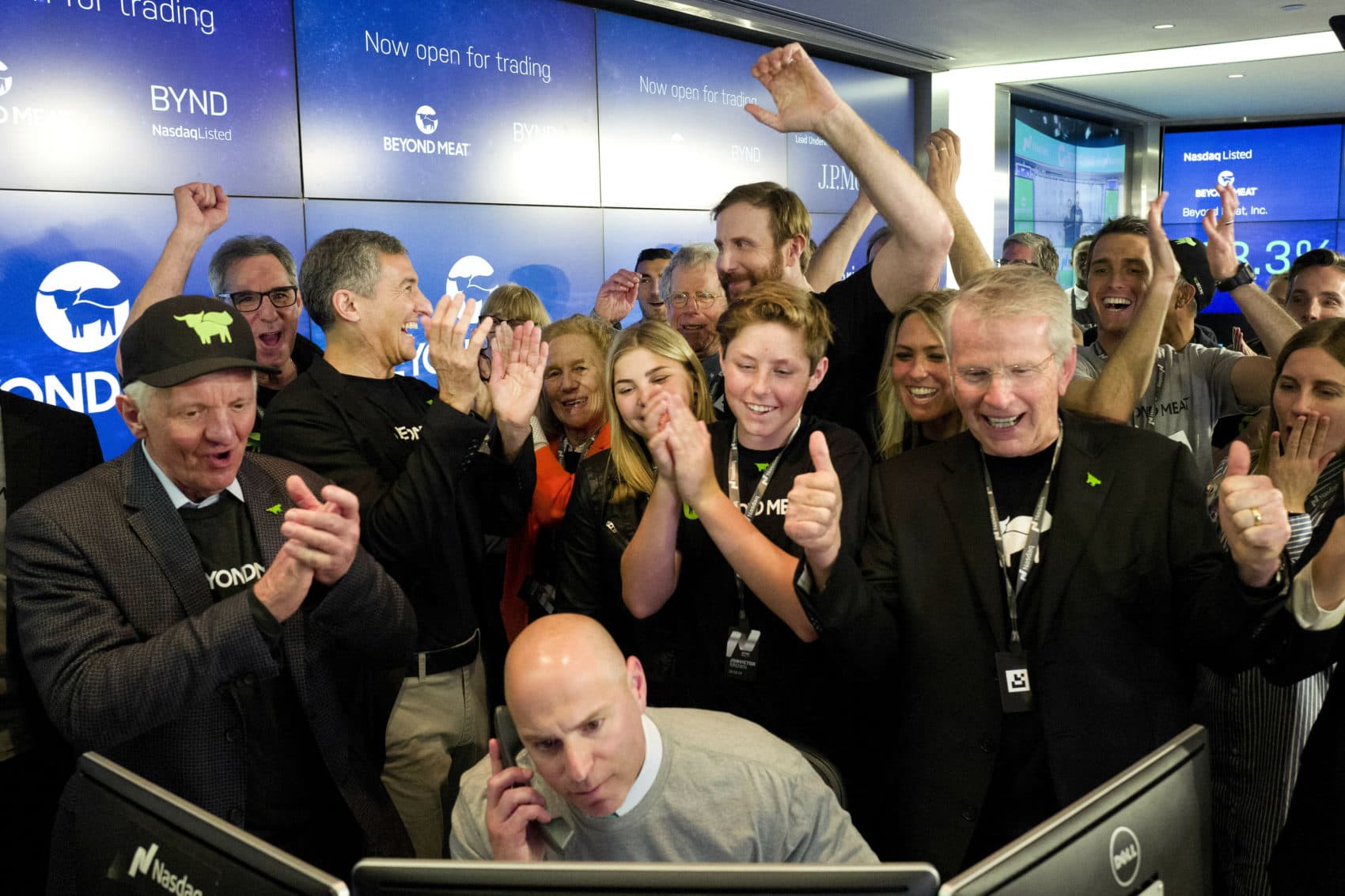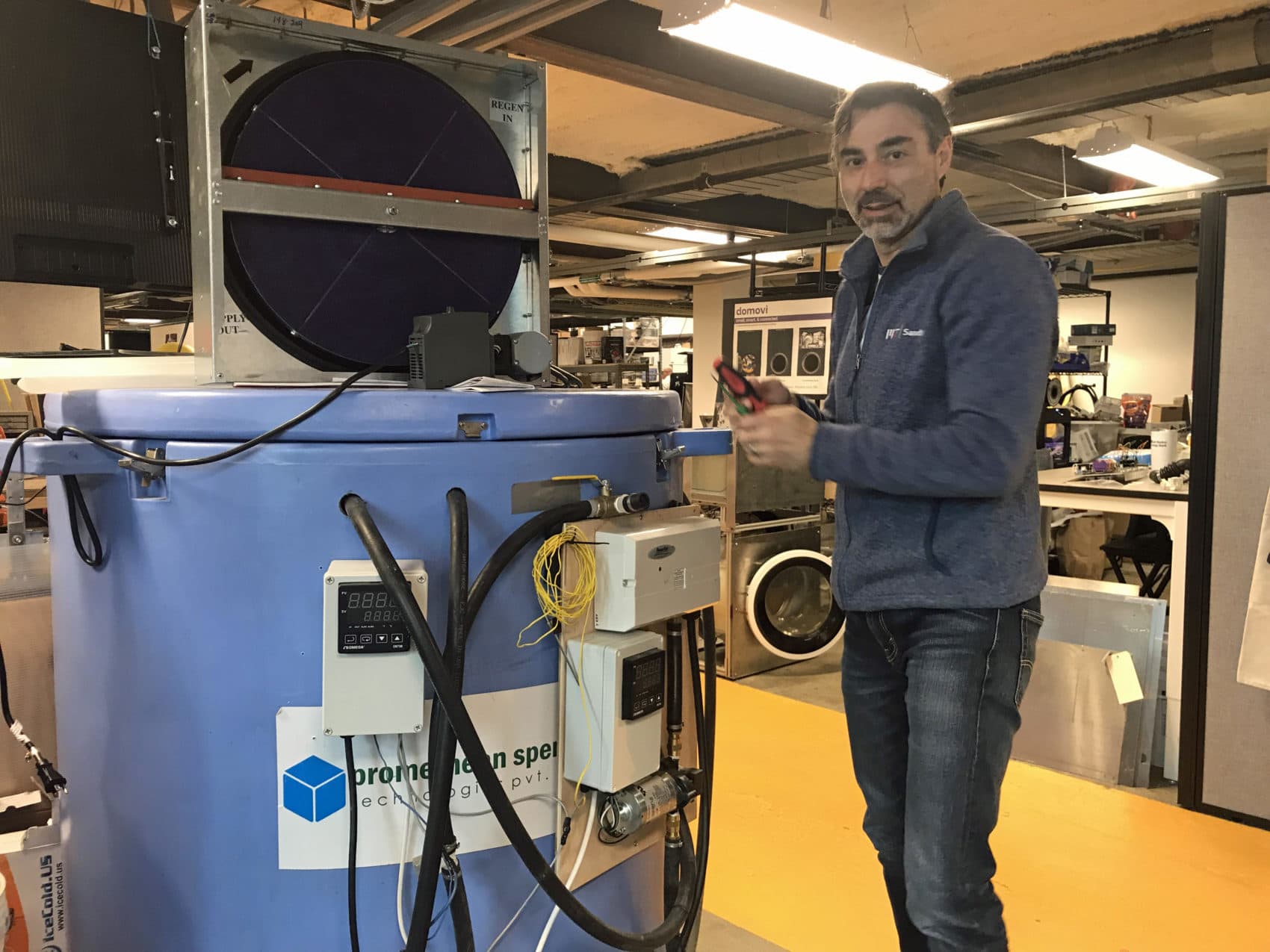Advertisement
Future Of Food
Investments In AgTech Are Growing Fast. What's Got Investors Betting On The Future Of Food
Resume
Boston venture firm Spark Capital has backed some of the tech sector's biggest hits: Twitter, Slack, Tumblr and Medium, just to name a few. So, what does Spark cofounder Todd Dagres see as the next hot thing?
Try scarlet kale.
Well, not kale itself but, rather, an innovative way of growing the leafy green and other produce. Dagres said his firm views agricultural technology as "a massive market opportunity."
"We think we're scratching the surface today," he said.
Dagres is hardly the only one who thinks so. AgTech investment spending has increased sixfold across the world since 2013, according to PitchBook, a firm that tracks venture deals. And the wide range of investors includes VC firms like Spark, large corporations and individuals with personal causes.
One of Spark's first bets is on Boston-based Freight Farms, which grows produce in 40-foot shipping containers, using hydroponic irrigation systems. On a recent visit to the company's South End headquarters, Dagres taste-tested the aforementioned scarlet kale and a sprig of wasabi arugula, which zinged his taste buds.
"I could see muddling this in a drink," he said.

Dagres said he was "really struck" by Freight Farms' mission to grow healthy food in urban environments where fresh produce can be hard to come by. Doing some good in the world is what entrepreneurs sometimes call a second bottom line, but it's not enough to win over a venture capitalist who must answer to profit-minded investors.
"Our investors give us money to invest in companies where we're going to maximize the return to them, and then they're going to go do great things with it." Dagres said. "Our job is not to do double-bottom-line investing. What I really like about mission-based businesses, though, is they're able to attract and retain better people, and they get free PR."
Dagres has a point. WBUR has reported on Freight Farms before.
The company isn't profitable yet, but Dagres envisions future returns.
"I think this company can make a big difference," he said. "I think it can be a company that eventually can go public."
That's what a California company called Beyond Meat did last month. Beyond Meat makes veggie burgers and other meat alternatives, and its IPO made an estimated $45 million for Tyson Foods — the agriculture giant, known for meat products, that was an investor.
Tyson declined an interview request.

Tyson is part of a trend, according to Heather Jones, who tracks the company as a managing director and senior equity analyst at the Vertical Group. Large corporations have been hedging their chicken nuggets and beef patties by investing in products that could disrupt their own industry, like pea protein and meat that comes from a lab, instead of an animal.
"Clearly, they see these changes," Jones said. "They're not on the horizon; they're here."
In the future, when the kinds of new food products in which Tyson is investing need to stay chilled in the grocery aisle, supermarkets might use cooling technology developed by Promethean Power Systems of Somerville.
At least, that's the hope of Promethean investor Miguel Granier.
"Every time you open up that door at the grocery store in the refrigerator aisle, they're having to kick on a compressor to go and chill that air again, when you close that door," said Granier, who recently moved from Boston to Atlanta. "That's absurdly inefficient. Why do we do that?"
Actually, Granier thinks he knows the answer. He said it's because energy efficiency isn't as high a priority in the U.S. as it is in, say, rural India, where energy is precious because electricity is unreliable.
That's where Promethean is getting started with a product for dairy farmers, called the Shiva. It's a high-tech battery system that can rapidly cool milk and keep it refrigerated, even when the power goes out.

Making food safer and more plentiful in a developing country fits into Granier's investment goals. He calls his firm Invested Development to signify a commitment to what he considers "some of the world's most pressing issues." He traces that commitment to childhood years spent in his parents' native Bolivia.
"Bolivia is a very poor country; it was extraordinarily unstable for many of the years that we lived there," he said. "And that definitely has an impact."
Of course, even a self-described "impact" investor like Granier has to think about making money, which is why he's eyeing the American grocery market. He said it's important to show traditional investors that doing good can also be profitable.
"We are sort of the trailblazers out there," he said. "And if we come back because that trail didn't work or because it didn't work for us because of a bad investment, then I think no one else goes down that path."
An investment to help feed a hungry planet is still an investment, not a donation.
This segment aired on June 3, 2019.
